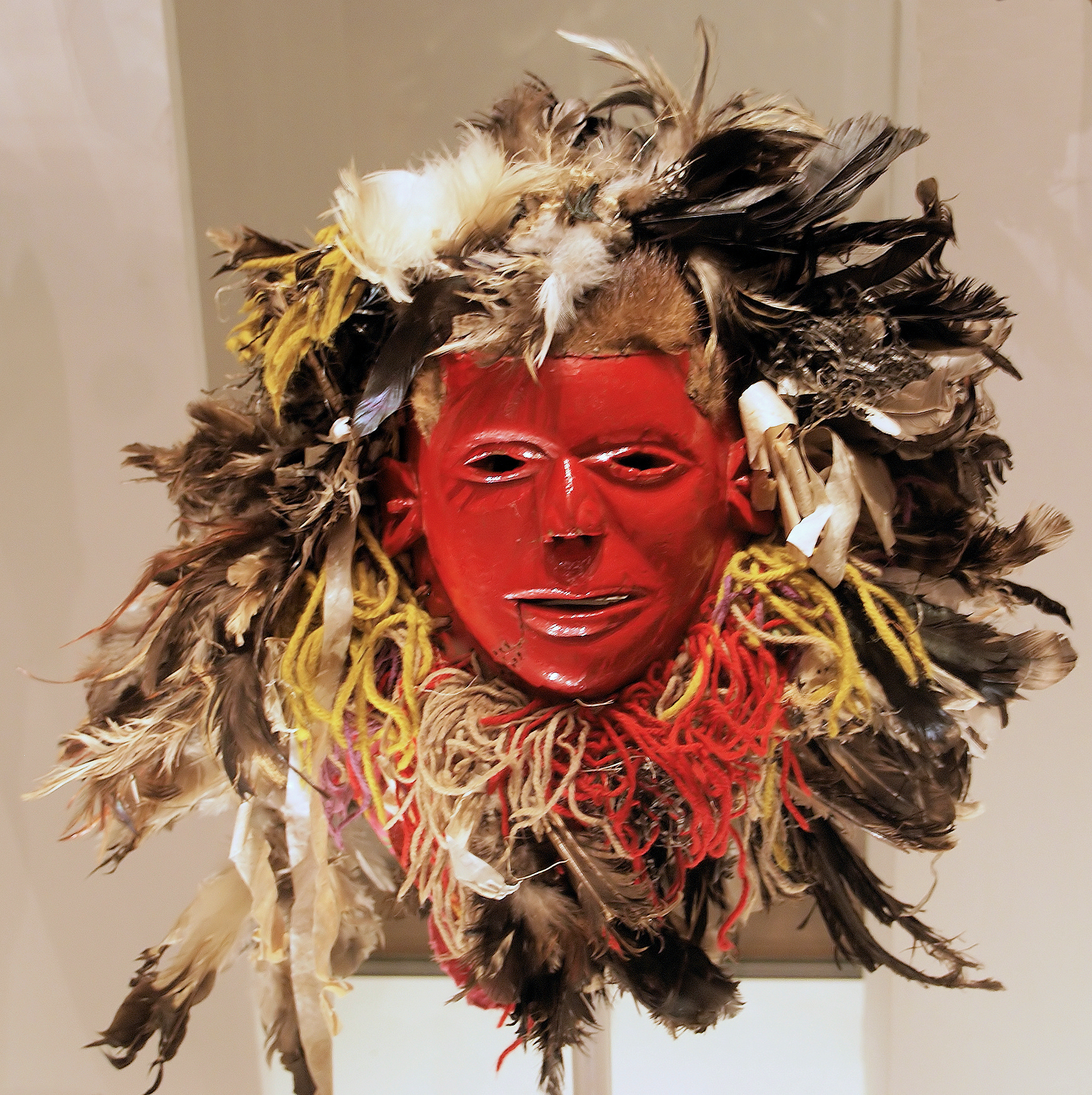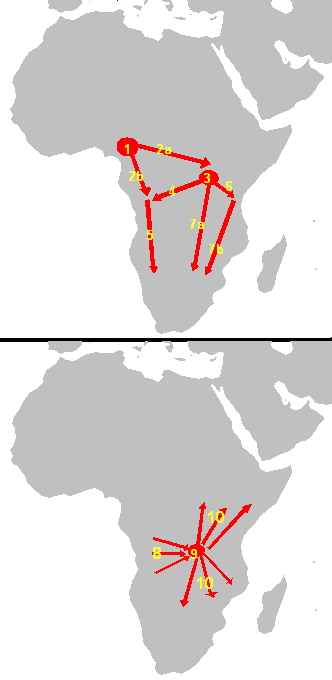|
Amaravi
The Amaravi were a Bantu people, living around Lake Nyasa in what is now Malawi in the 15th century. They founded a dynasty known as the Maravi Empire. The Amaravi, who eventually became known as the Chewa (a word possibly derived from a term meaning "foreigner"), migrated to Malawi from the region of the modern day Republic of Congo The Republic of the Congo (french: République du Congo, ln, Republíki ya Kongó), also known as Congo-Brazzaville, the Congo Republic or simply either Congo or the Congo, is a country located in the western coast of Central Africa to the w .... References Bantu peoples Ethnic groups in Malawi History of Malawi {{Africa-hist-stub ... [...More Info...] [...Related Items...] OR: [Wikipedia] [Google] [Baidu] |
Bantu People
The Bantu peoples, or Bantu, are an ethnolinguistic grouping of approximately 400 distinct List of ethnic groups of Africa, ethnic groups who speak Bantu languages. They are native to 24 countries spread over a vast area from Central Africa to Southeast Africa and into Southern Africa. There are several hundred Bantu languages. Depending on the definition of Dialect#Dialect or language, "language" or "dialect", it is estimated that there are between 440 and 680 distinct languages. The total number of speakers is in the hundreds of millions, ranging at roughly 350 million in the mid-2010s (roughly 30% of the demographics of Africa, population of Africa, or roughly 5% of world population, the total world population). About 60 million speakers (2015), divided into some 200 ethnic or tribal groups, are found in the Democratic Republic of the Congo alone. The larger of the individual Bantu groups have populations of several million, e.g. the people of Rwanda and Burundi (25 million), th ... [...More Info...] [...Related Items...] OR: [Wikipedia] [Google] [Baidu] |
Lake Nyasa
Lake Malawi, also known as Lake Nyasa in Tanzania and Lago Niassa in Mozambique, is an African Great Lake and the southernmost lake in the East African Rift system, located between Malawi, Mozambique and Tanzania. It is the fifth largest fresh water lake in the world by volume, the ninth largest lake in the world by area—and the third largest and second deepest lake in Africa. Lake Malawi is home to more species of fish than any other lake in the world, including at least 700 species of cichlids.Turner, Seehausen, Knight, Allender, and Robinson (2001). "How many species of cichlid fishes are there in African lakes?" ''Molecular Ecology'' 10: 793–806. The Mozambique portion of the lake was officially declared a reserve by the Government of Mozambique on June 10, 2011,WWF (10 June 2011)"Mozambique’s Lake Niassa declared reserve and Ramsar site"Retrieved 17 July 2014. while in Malawi a portion of the lake is included in Lake Malawi National Park. Lake Malawi is a meromic ... [...More Info...] [...Related Items...] OR: [Wikipedia] [Google] [Baidu] |
Malawi
Malawi (; or aláwi Tumbuka: ''Malaŵi''), officially the Republic of Malawi, is a landlocked country in Southeastern Africa that was formerly known as Nyasaland. It is bordered by Zambia to the west, Tanzania to the north and northeast, and Mozambique to the east, south and southwest. Malawi spans over and has an estimated population of 19,431,566 (as of January 2021). Malawi's capital (and largest city) is Lilongwe. Its second-largest is Blantyre, its third-largest is Mzuzu and its fourth-largest is its former capital, Zomba. The name ''Malawi'' comes from the Maravi, an old name for the Chewa people who inhabit the area. The country is nicknamed "The Warm Heart of Africa" because of the friendliness of its people. The part of Africa now known as Malawi was settled around the 10th century by migrating Bantu groups . Centuries later, in 1891, the area was colonised by the British and became a protectorate of the United Kingdom known as Nyasaland. In 1953, it became ... [...More Info...] [...Related Items...] OR: [Wikipedia] [Google] [Baidu] |
Maravi
Maravi was a kingdom which straddled the current borders of Malawi, Mozambique, and Zambia, in the 16th century. The present-day name " Maláŵi" is said to derive from the Chewa word "malaŵí", which means "flames". History At its greatest extent, the state included territory from the Tonga and Tumbuka people's areas in the north to the Lower Shire in the south, and as far west as the Luangwa and Zambezi river valleys. Maravi's rulers belonged to the Mwale matriclan and held the title Kalonga. They ruled from Manthimba, the secular/administrative capital, and were the driving force behind the state's establishment. Meanwhile, the patrilineal Banda clan, which traditionally provided healers, sages and metallurgists, took care of religious affairs from their capital Mankhamba near Nthakataka. After contact with the Portuguese, trade intensified. It included such items as beads of the Khami type and Chinese porcelain imported via Portuguese intermediaries. In the 19th ... [...More Info...] [...Related Items...] OR: [Wikipedia] [Google] [Baidu] |
Chewa People
The Chewa (or AChewa) are a Bantu ethnic group native to central and southern Africa and the largest ethnic group in Malawi. The Chewa are closely related to people in surrounding regions such as the Tumbuka and Nsenga. They are historically also related to the Bemba, with whom they share a similar origin in the Democratic Republic of the Congo. As with the Nsenga and Tumbuka, a small part of Chewa territory came under the influence of the Ngoni, who were of Zulu or Natal/Transvaal origin. An alternative name, often used interchangeably with Chewa, is Nyanja. Their language is called Chichewa. Internationally, the Chewa are mainly known for their masks and their secret societies, called Nyau, as well as their agricultural techniques. The Chewa (like the Nyanja, Tumbuka, Senga, Nsenga, Mang'anja) are a remnant of the Maravi (Malawi) people or empire. There are two large Chewa clans, the Phiri and Banda, with a population of 1.5 million people. The Phiri are associated ... [...More Info...] [...Related Items...] OR: [Wikipedia] [Google] [Baidu] |
Republic Of Congo
The Republic of the Congo (french: République du Congo, ln, Republíki ya Kongó), also known as Congo-Brazzaville, the Congo Republic or simply either Congo or the Congo, is a country located in the western coast of Central Africa to the west of the Congo river. It is bordered to the west by Gabon, to its northwest by Cameroon and its northeast by the Central African Republic, to the southeast by the Democratic Republic of the Congo, to its south by the Angolan exclave of Cabinda and to its southwest by the Atlantic Ocean. The region was dominated by Bantu-speaking tribes at least 3,000 years ago, who built trade links leading into the Congo River basin. Congo was formerly part of the French colony of Equatorial Africa. The Republic of the Congo was established on 28 November 1958 and gained independence from France in 1960. It was a Marxist–Leninist state from 1969 to 1992, under the name People's Republic of the Congo. The country has had multi-party elections since 1 ... [...More Info...] [...Related Items...] OR: [Wikipedia] [Google] [Baidu] |
Bantu Peoples
The Bantu peoples, or Bantu, are an ethnolinguistic grouping of approximately 400 distinct ethnic groups who speak Bantu languages. They are native to 24 countries spread over a vast area from Central Africa to Southeast Africa and into Southern Africa. There are several hundred Bantu languages. Depending on the definition of "language" or "dialect", it is estimated that there are between 440 and 680 distinct languages. The total number of speakers is in the hundreds of millions, ranging at roughly 350 million in the mid-2010s (roughly 30% of the population of Africa, or roughly 5% of the total world population). About 60 million speakers (2015), divided into some 200 ethnic or tribal groups, are found in the Democratic Republic of the Congo alone. The larger of the individual Bantu groups have populations of several million, e.g. the people of Rwanda and Burundi (25 million), the Bagandapeople of Uganda (10 million as of 2019), the Shona of Zimbabwe (15 million ), the Zulu of ... [...More Info...] [...Related Items...] OR: [Wikipedia] [Google] [Baidu] |
Ethnic Groups In Malawi
Malawi (; or aláwi Tumbuka: ''Malaŵi''), officially the Republic of Malawi, is a landlocked country in Southeastern Africa that was formerly known as Nyasaland. It is bordered by Zambia to the west, Tanzania to the north and northeast, and Mozambique to the east, south and southwest. Malawi spans over and has an estimated population of 19,431,566 (as of January 2021). Malawi's capital (and largest city) is Lilongwe. Its second-largest is Blantyre, its third-largest is Mzuzu and its fourth-largest is its former capital, Zomba. The name ''Malawi'' comes from the Maravi, an old name for the Chewa people who inhabit the area. The country is nicknamed "The Warm Heart of Africa" because of the friendliness of its people. The part of Africa now known as Malawi was settled around the 10th century by migrating Bantu groups . Centuries later, in 1891, the area was colonised by the British and became a protectorate of the United Kingdom known as Nyasaland. In 1953, it became a ... [...More Info...] [...Related Items...] OR: [Wikipedia] [Google] [Baidu] |


